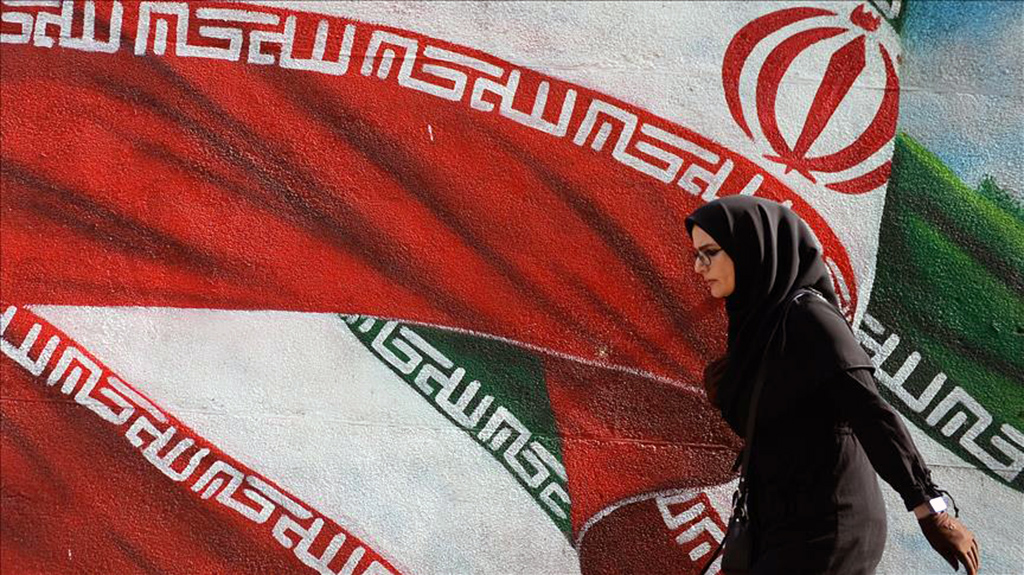A few weeks ago, this column detailed how, in the last two decades, U.S. administrations have periodically made war plans and debated conflict scenarios. Both the George W. Bush and Barack Obama administrations did it, and now the Donald Trump administration has come to a similar point of deliberating a military response against Iran.
Every period of this debate has caused concern and unintended escalation that could eventually lead to a heated war between U.S. forces and Iranian forces. However, the developments that took place in the last few weeks not only escalated the tension but also lead to a series of new revelations about increasing polarization among the members of the Trump administration regarding policies on Iran.
From the very beginning, especially since the appointment of John Bolton as national security adviser and Mike Pompeo as secretary of state, there has been an understanding that Iran would have a high priority in foreign policy.
However, it was not clear what the goals of the administration’s Iran policy would be. President Trump, from the very beginning, has been against the Iran nuclear deal, just like the other members of his team.
The unanimous opposition about it led to the U.S. withdrawal from the agreement. However, things started to fall apart after that. Although Trump mentioned Iranian proxy activism in the region during his campaign for presidency, he decided not to pursue this goal after taking office.
Moreover, on every occasion, he has repeated his willingness to renegotiate the deal with Iranian leadership. But other members of his administration seemed more ambitious about their plans on Iran. Secretary of State Pompeo’s list of demands from Iran, presented as a strategy, included its missile program, relations with neighbors, proxy wars and the nuclear issue.
Bolton mentioned these issues but also signaled it may be time for a regime change in Iran. The lack of leadership in the Pentagon in the last six months made Bolton much more assertive in trying to shape U.S. security policy in the region as well.
Over the past few weeks, the repeated attacks on tankers in the Gulf and the Iranian downing of a U.S. drone brought all of these different positions in the administration to the surface again. Bolton continued to be the assertive actor regarding Iran, and Pompeo indicated a similar position by emphasizing that all options are on the table.
However, soon after, President Trump reportedly stated that the attacks on the tankers were minor incidents and that the region is losing its strategic value for the U.S. These statements by the president were interpreted as a sign of reluctance in the escalation with Iran.
The fact that Japanese Prime Minister Shinzo Abe delivered a message to Iranian leadership in the midst of all these attacks demonstrates Trump’s willingness to negotiate a deal. In fact, even after last week’s drone downing, the divergence of Washington’s position once more demonstrated itself. Although Trump tweeted that, “Iran made a very big mistake,” later, during his press conference with the Canadian Prime Minister Justin Trudeau, he said it could have been an unintentional incident.
Later, The New York Times also reported that Trump had backed down from a military strike at the very last minute. Given the lack of a dialogue between the U.S. and Iran at this point, the coming days in U.S.-Iran relations will largely be determined by debates among the members of the administration.
Any incident in the region will be majorly impacted by the absence of a long-term strategy. It is also important to understand that the outcome of these debates will still not provide a strategy for the U.S. but instead will be tactical moves that can alleviate or escalate the situation with Iran.
[Daily Sabah, 22 June 2019]
In this article
- Opinion
- CENTCOM
- DAESH
- Daily Sabah
- Donald Trump
- East of the Euphrates
- Fight against DAESH
- George W. Bush
- Global Actors | Local Actors
- Iran
- Iran Nuclear Deal | Joint Comprehensive Plan of Action (JCPOA)
- Islamic Republic of Iran
- Kurdistan Workers' Party Terrorist Organization (PKK)
- Middle East
- NATO
- NATO Ally
- Obama Administration
- Operation Euphrates Shield
- Opposition
- Peace Corridor
- People's Protection Units (YPG)
- PKK - YPG - SDF - PYD - YPJ - SDG - HBDH - HPG - KCK - PJAK - TAK - YBŞ
- Prime Minister
- Safe Zone
- Sanctions
- Syria
- Syrian Civil War
- Syrian Conflict
- Syrian Crisis
- Syrian Democratic Forces (SDF)
- Syrian National Army (SNA)
- Syrian National Coalition
- Syrian Opposition
- Syrian Refugees
- Terrorism
- The New York Times (NYT)
- Trump Administration
- Trump’s Syria Withdrawal
- Turkish Foreign Policy
- Turkish-American Relations
- Türkiye-US Relations
- Türkiye-US Security Relations
- Türkiye's Foreign Policy
- Türkiye's Operation Peace Spring
- Türkiye’s Operation Olive Branch
- U.S.-Middle East
- United States (US)
- US Sanctions
- US Withdrawal from Syria
- US-Iran Relations
- US-PKK/PYD/YPG/SDF Relations
- US-Terror Relations
- Vladimir Putin



